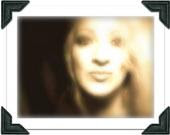Imagine that a drug was invented that induced permanent, general anesthesia -- the total loss of consciousness -- even though people who took it somehow continued to get up in the morning and go to sleep at night just as before, completely unchanged in the eyes of those around them. Taking the drug, then, would amount to dying. It would have all the attractions of death for the depressed and suffering, and all of its horrors for those who love life. For when we are not conscious, not only do we cease to exist in the sense that matters to us, but the world itself blinks out for us.Consciousness, therefore, is the ultimate gift, the starting point which makes life and the world a reality for us. And yet consciousness is invisible to science, just as it is invisible to me or you. How then does Jay Ingram, the man who translates the wonders of science for the common Canadian, propose, as his subtitle promises, to "raise the curtain on consciousness"? For consciousness is not like stars or stags or quirks or quarks. It is the last remnant of what, since the days of the ancients, has been called the soul.Behold the great mystery of our era, the world-knot that lies behind the curtain at the core of our culture: consciousness. The mind has employed science to solve the mysteries of the universe, but now is boggled by the riddle of itself. Consciousness does not permeate you like an electric field. It does not appear with the aid of microscopes, x-rays or magnetic resonance imaging. It cannot be seen in the skull, which is instead stuffed with neurons.
Ingram knows this. Why, then, write this book?Galileo and Newton, the forefathers of modern science, proclaimed the soul non-physical, hence forever beyond the grasp of science. For centuries their view prevailed, dividing the universe into two realms, the physical, which is the kingdom of science, and the spiritual, which is the kingdom of religion. Even psychology, the "science" of the mind that stumbled into existence scarcely more than a century ago, long ago shunned the riddle of consciousness in favour of behaviorism.
Subscribe to:
Post Comments (Atom)







No comments:
Post a Comment